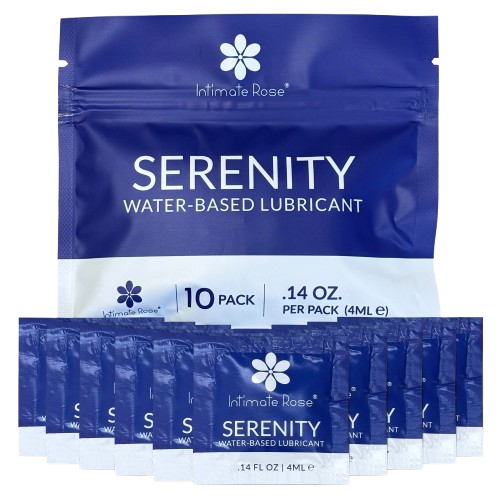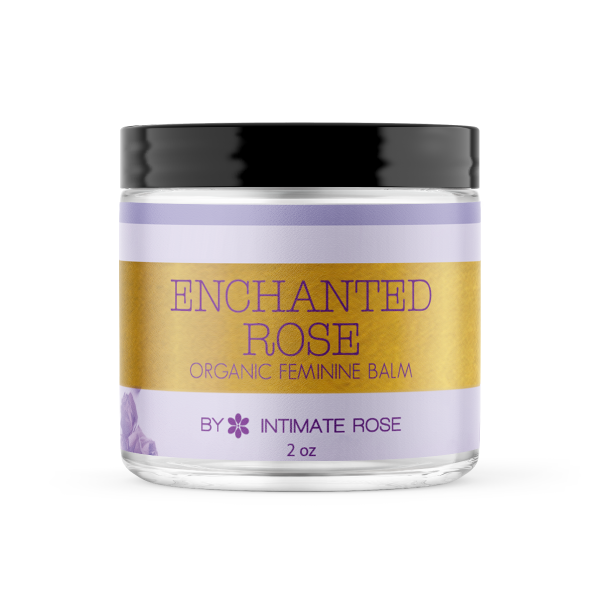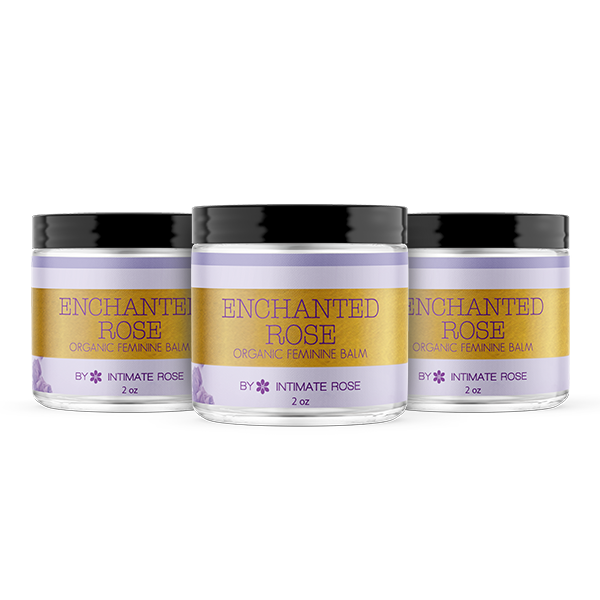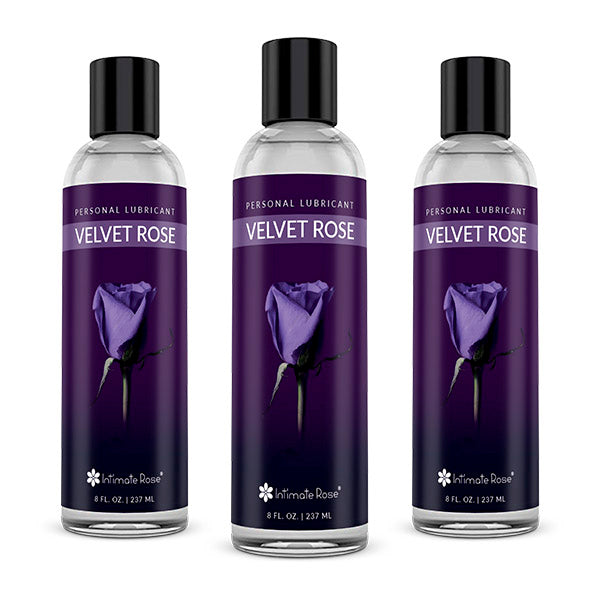Menopause is diagnosed when the ovaries have stopped releasing eggs and the menstrual cycle has not occurred for twelve consecutive months. It usually occurs in the late 40s or early 50s as a result of hormonal changes in the female body. And symptoms can vary for each woman.
As well as natural hormonal changes, menopause can begin after the surgical removal of the ovaries or uterus. Radiation or chemotherapy can also induce menopause. Approximately 1% of women experience premature menopause due to the ovaries producing insufficient amounts of hormones.
In this article, we’ll discuss menopause, what it is, symptoms, treatments, and more.
What is Menopause?
As most women approach their late 40s, the production of estrogen and progesterone naturally begin to decrease in preparation for the non-reproductive phase of life. This stage can last anywhere from 5-10 years and is known as peri-menopause – the phase just before menopause.
Menstrual cycles continue during peri-menopause, however, they usually become irregular. Often shorter, sometimes longer, during perimenopause, the menstrual cycle can also skip a few months and return regularly for a few more.
As estrogen levels continue to drop, the ovaries release fewer and fewer eggs, until eventually, no more eggs are released and the menstrual cycle stops. Once a woman has not had a period for twelve months in a row, she is diagnosed with menopause.
What Women Can Expect During the 3 Stages of Menopause?
The journey through menopause is typically divided into three distinct stages: perimenopause, menopause, and postmenopause. Each phase is characterized by unique changes in hormone levels, particularly estrogen, and varies in duration and symptomatology.
Perimenopause - The Onset
During perimenopause, estrogen and progesterone levels begin to fluctuate unpredictably. Ovarian function starts to decline, leading to less regular menstrual cycles. This period can commence in a woman's 40s, but for some, it begins as early as their 30s. The average duration is approximately four years, yet for some individuals, it could last just a few months or extend for a full decade. Symptoms such as hot flashes, mood swings, and sleep disturbances often emerge during this stage.
Menopause - The Transition
Menopause is marked by the cessation of menstrual periods for twelve consecutive months. Typically occurring between ages 45 and 55, with an average age of 51 in the United States, this stage heralds the end of a woman's reproductive years. Estrogen levels fall to their lowest, triggering physical symptoms like vaginal dryness and changes in sexual function, alongside cognitive effects such as difficulty concentrating.
Postmenopause - A New Chapter
Postmenopause describes the years after menopause has occurred. Estrogen levels stabilize at a low level; however, low estrogen continues to pose risks for health issues such as osteoporosis and heart disease. At this stage, many women notice a reduction in menopausal symptoms, while others might continue to experience symptoms for a decade or longer after their final menstrual period.
- How do these stages affect daily living and long-term health?
- What lifestyle adjustments can help manage symptoms?
- When should conversation with a healthcare provider become a priority?
Understanding menopause entails recognizing the nuanced hormonal dance occurring within a woman's body throughout these stages.
What Are the Signs and Symptoms of Menopause?
The symptoms that women experience during menopause are the result of the female body adapting to these natural hormonal changes. And just like no two bodies are the same, no two women will experience the same menopausal symptoms either.
- Hot Flashes
- Vaginal Dryness
- Breast Pain and Tenderness
- Cramps
- Heart Palpitations
- Muscle and Joint Pain
- Osteoporosis
- Acne
- Body Odor
- Dry Skin
- Hair Loss
- Low Libido
Symptoms like hot flashes, night sweats, pelvic discomfort, and a lack of concentration can also begin to occur as women approach the end of perimenopause and enter the menopausal phase.
Hair thinning, facial hair growth, weight gain, and occasional spotting are also perfectly normal symptoms of menopause.
Post menopause is the term given to the time of life after menopause has been diagnosed. And while some menopausal symptoms continue during this phase, they are typically less frequent and not as intense. However, due to the lowered levels of estrogen, bones can weaken in postmenopausal women, putting them at risk for developing osteoporosis.
That said, even though menopause symptoms can seem daunting, there are treatments, lifestyle changes, and natural remedies to help relieve side effects.
Treating Menopause Symptoms
Menopause symptoms will vary in frequency, intensity, and duration during each of the three phases of menopause. The symptoms felt will also vary from woman to woman. With some understanding, however, treating menopause symptoms becomes a lot easier.
Read our guide on the 7 Best Supplements for Menopause Symptoms
Hormonal and Non Hormonal Menopause Relief
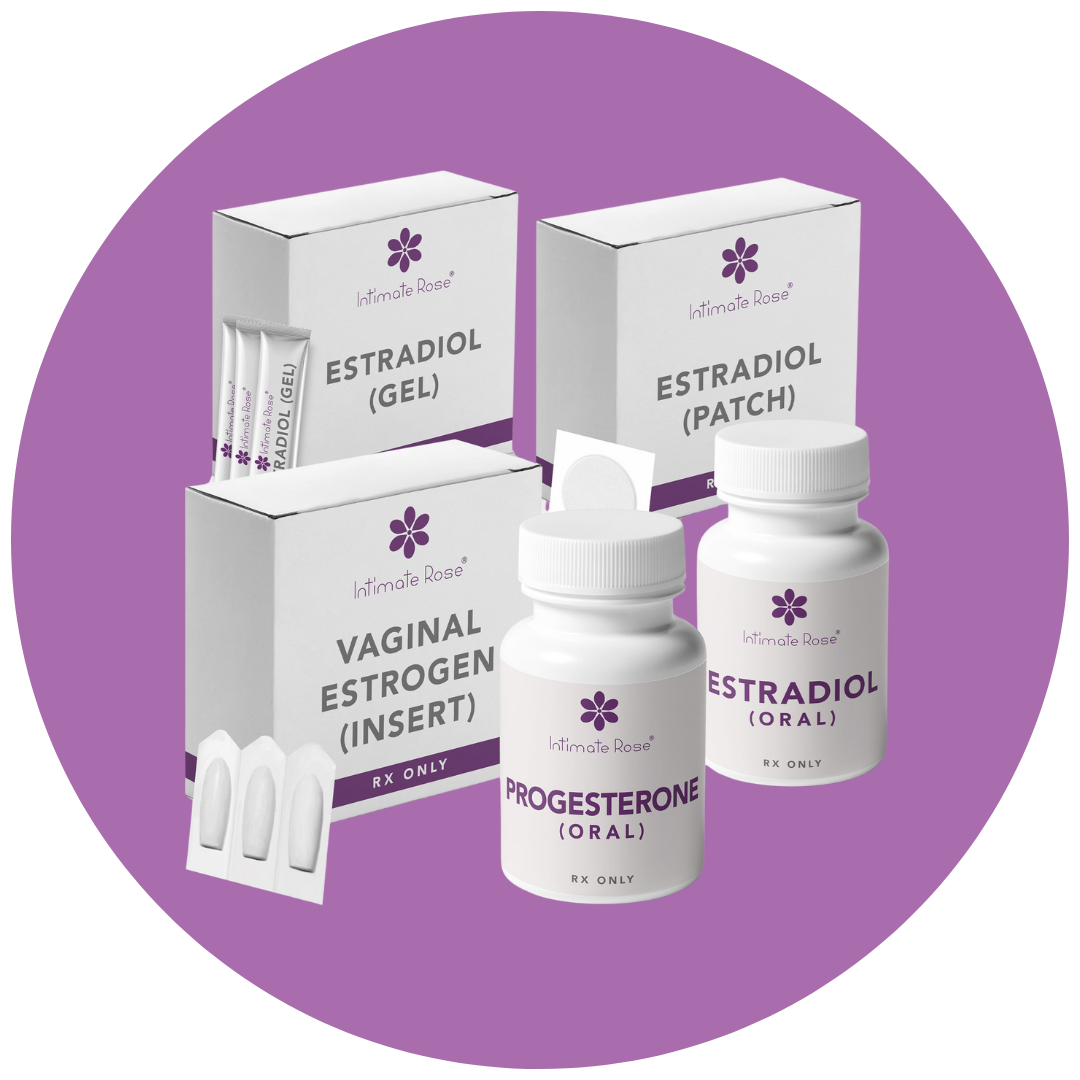
Weight Gain & Weak Bones
To counteract any weight gain, consider making some healthy adjustments to your diet, avoiding certain foods and participating in regular exercise. Eating a healthier diet along with regular exercise also helps strengthen your bones and heart as estrogen levels decrease.
Mood Swings, Breast Tenderness & Pelvic Discomfort
A natural remedy called Chasteberry is known to significantly aid in managing menopause symptoms. By helping to slow down excessive hormone secretion, as well as boosting the production of insufficient hormones, this natural supplement reduces mood swings, breast tenderness, pelvic discomfort, and interrupted sleep.
Hot Flashes
Chasteberry is also recommended to ease hot flashes during menopause. Women’s health experts have reported that patients taking a regular vitex supplement like the Chasteberry Supplement from Intimate Rose have felt a significant decrease in the frequency, as well as the intensity, of hot flashes. Here's also a list of the best foods to fight hot flashes.
Hair Thinning & Interrupted Sleep
A healthy diet, regular exercise, and keeping the body hydrated with plenty of water will prevent excessive hair thinning during menopause. These healthy lifestyle changes will also prepare the body for sounder sleep.
Eating light meals in the evening, as well as keeping screen time to a minimum for at least one hour before bed, will also help improve interrupted sleep during menopause.
If you experience hair thinning it is also helpful to speak with your doctor about blood testing to determine if the thyroid is functioning properly. Medications may be indicated if thyroid performance is underactive.
Vaginal Dryness & Lack of Libido
Vaginal moisturizers, like the Organic Vaginal Moisturizer from Intimate Rose, help to relieve vaginal dryness due to menopause. Once lubricated, the vagina can also regain some of the sensation lost due to the decrease of estrogen, thereby improving sexual desire too.

Get your personalized HRT plan!

Get your personalized HRT plan!
Conclusion
Menopause is a natural process that all women go through. And although the process can last anywhere from 5-10 years, the variety, duration, and intensity of symptoms will vary for each woman.
Some healthy lifestyle changes, regular exercise, and a nutritious diet can help manage most menopause symptoms. Additionally, natural remedies, like a chasteberry supplement and vaginal moisturizers, will help re-balance hormones and lessen the intensity of menopausal symptoms.
If you suspect you may have begun the transition into menopause, scheduling a consultation with your health practitioner will help you to comprehend the best treatment plan for you. You can also learn more about menopause treatment online at Intimate Rose.
More Resources
This content is intended solely for informational purposes and should not be considered medical advice. It is not meant to replace the guidance of a qualified healthcare professional. Be sure to consult with your doctor to discuss the potential risks and benefits of any treatment options.
References
Mayo Clinic – Menopause - https://www.mayoclinic.org/diseases-conditions/menopause/symptoms-causes/syc-20353397
National Center For Biotechnology - The Massachusetts women’s health study: An epidemiologic investigation of the menopause - ncbi.nlm.nih.gov/pubmed/7722206
National Center For Biotechnology - Comparison of Vitex agnus-castus Extracts with Placebo in Reducing Menopausal Symptoms: A Randomized Double-Blind Study - https://www.ncbi.nlm.nih.gov/pmc/articles/PMC6887765/
National Center For Biotechnology - Treatment of premenstrual syndrome with a phytopharmaceutical formulation containing Vitex agnus castus - https://pubmed.ncbi.nlm.nih.gov/10787228/
National Center For Biotechnology - Factors associated with developing vaginal dryness symptoms in women transitioning through menopause: a longitudinal study - https://www.ncbi.nlm.nih.gov/pmc/articles/PMC6136974/

Get your personalized HRT plan!






